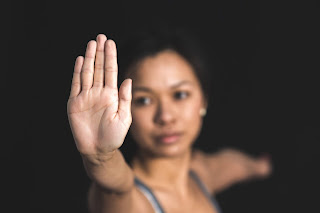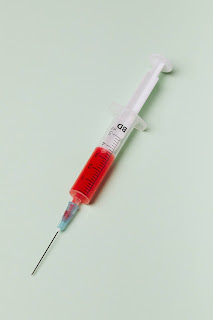What are the effects of touch deprivation on the elderly?
Touch Deprivation and the Elderly
It is so easy to take for granted the power of touch, as often without realising it we are constantly receiving it in different forms throughout our everyday lives. What is the first and last thing we do when we see friends or say goodbye to family? We exchange hugs. When we are out walking with our partner or loved ones we often reach for their hand to feel more connected. At school or work others may celebrate success with us with a pat on the back or on the arm.
These are normal every day occurrences for some and yet for others that therapeutic touch that we all need as human beings to feel loved, safe and cared for may be much harder to come by.
This is particularly evident with seniors, who for numerous reasons, may no longer be able to receive that healing touch that can have such a huge impact on their physical, emotional and social wellbeing. It may be that they live alone and far away from family, leaving them feeling less grounded and physically connected. Their mobility may be limited, leading to feelings of frustration or inadequately, which will inevitably affect their sense of self-esteem and self-confidence. They may have limited access to social activities and contact with others leading to feelings of loneliness and isolation.
As we get older, our skin naturally becomes thinner and loses its elasticity and our touch receptors are altered ,as the skin becomes less taut. As a result, our sensitivity to pressure, pain, vibration and temperature are reduced and our immunity begins to decline, resulting in poor circulation and various health concerns, leading to an increase in medication that affects our sense of touch.
This is the circle of life and how cruel it can sometimes be. When we are young and beautiful, we attract attention from many admirers who will readily want to touch us and have that contact and yet as we age and our looks fade and our skin loses that youthful glow, the desire for connection and touch, is much less readily available to us and yet our desire for it remains the same. In an ideal world our mothers love, nurture us and take care of us as children when we are vulnerable and we rely on them to do so and yet when the circle completes and it is our turn to show the same love and care for them, this does not always necessarily happen.
Touch is what makes us feel connected to others and this is particularly relevant when it comes to seniors, when touch may not be so readily available. Many seniors live alone and may go days without having any contact with anyone, is it any wonder then that the sense of loneliness often felt can be so overbearing. It has been proven that social isolation and a lack of touch can lead to a weakened immune system and therefore more susceptibility to illness or disease including an increased risk of Dementia ,Heart Disease and Stroke.
The power of touch can be incredibly calming, leading to an increase in white blood cell production therefore boosting immunity and in addition lowering blood pressure by decreasing Stress leading to improved mental, emotional and physical health.
Touch also makes us feel loved and desired no matter what our age is, but perhaps in our senior years this becomes even more important as the things we take for granted in our child and adult hood such as hearing and vision start to fail, followed by incontinence ,falls, malnutrition due to being unable to be so self-sufficient. A combination of feeling our body start to shut down ultimately leads to feelings of vulnerability, fear and Depression for many older people. Therefore, forming a sense of trust and connection with our seniors is so important to increase their self-confidence leading to an elevated mood and therefore reduced Heart rate and Stress which result in improved sleep patterns and improved immunity.
So what are some simple ways we can incorporate touch into the lives of our beloved seniors? Make the effort to visit regularly and spend quality time together, holding hands or even just giving a hand massage and rubbing lotion into the fingers can provide a relief from pain and conditions such as arthritis, whilst giving that soothing contact. Even booking a professional massage can be so beneficial, as although it does not give emotional intimacy, it activates the hormonal pathways within the body leading to an increased physical and emotional wellbeing.
Why not encourage your loved one to volunteer, take up a hobby, or invite them to an event to help them feel wanted and recognize their importance to others around them. An introduction to their neighbour could really offer a life line in helping to combat feelings of being alone and it would offer opportunities for that all essential contact and feelings of safety as someone is ‘watching out for them’, which will also help to put your mind at rest if you do not live locally.
No matter how young or old, we are all human beings and we all yearn for touch and yet how easily the power of touch can be undervalued and not recognised. The strains and pressures of society have led us to live in what can be a very self-indulgent world, where something as important as giving direct eye contact or a smile can be discouraged as our reasons for doing so could be misinterpreted. But the difference a simple gesture like this can make to anyone so they feel seen and acknowledged can be profound, especially with older people who can at times feel ‘invisible’.
As human beings we are not machines, we all have a deep desire, need and yearning to feel love irrespective of our age and to feel that sense of connection to feel important, acknowledged and valued as sadly otherwise we can easily feel lost, forgotten or insignificant in a world that is not always as kind and understanding as it could be.
Elizabeth Lock Professional Holistic and Cuddle Therapist CTHA
heal@yourinnerglow.co.uk https:// yourinnerglow.co.uk
heal@yourcuddletherapy.co.uk https:// yourcuddletherapy.co.uk




Comments
Post a Comment